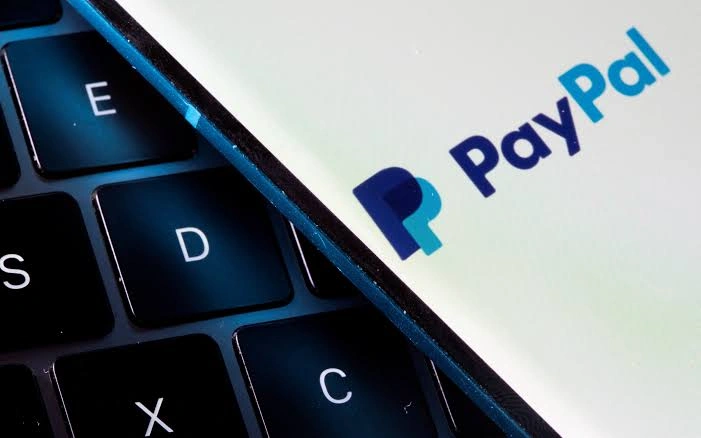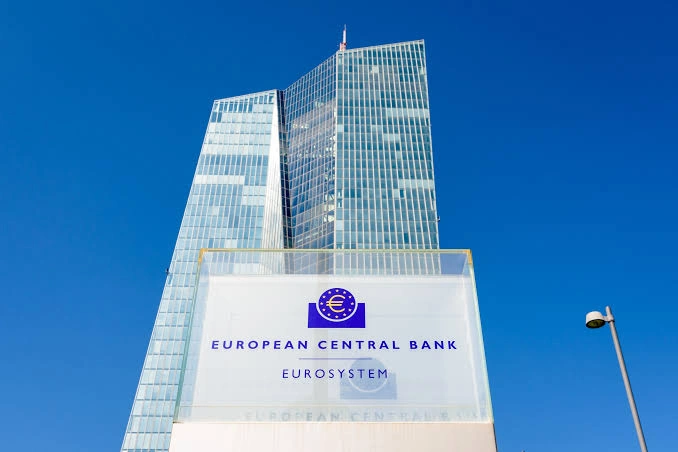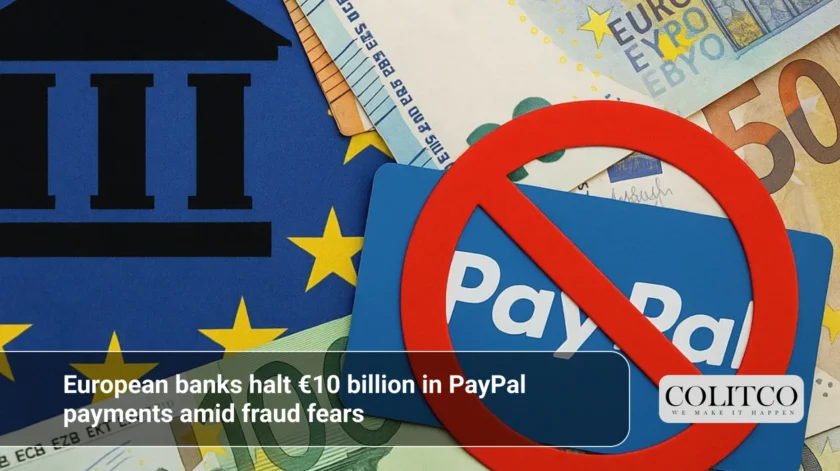What triggered the disruption?
German banks and European banks together suspended more than ten billion euros in PayPal transactions this week. This action was taken due to increasing concerns over PayPal unauthorised direct debits and their subsequent unchecked flow through the banking system.
This issue began when PayPal’s internal fraud prevention systems, as insiders called it, completely or almost completely failed. This failure then allowed a flood of suspicious transactions to be presented to banks.
PayPal’s core banking partners, including the largest of Germany’s savings banks, reacted promptly to suspend the transactions. Most of the suspensions took place late Monday, and the systems were gradually brought back online on Tuesday. The magnitude of the problem posed further questions about the potential risks of digital payments.
As reported by the media, the number of such transactions crossed the limit of millions, which forced banks to take preemptive measures for customer protection. The continued delays to genuine transactions spread not only to Germany but also to other countries and put a halt to payments.

Banks froze €10B in PayPal transactions over fraud fears
How did PayPal respond?
PayPal confirmed that an incident had occurred, stating that a “temporary service interruption” affected users as well as banks. The firm also stated that it had located the issue and, with partner firms, hastily worked to restore transaction flows.
Executives stressed that user funds were secure and no monetary losses were reported. The troubling admission, however—that the fraud-screening systems had been “completely or largely disrupted”—was troubling for the finance industry.
The company stated that improvements to risk-management controls would be made to avoid future incidents. UK and European banks were given priority for partnership, and joint inquiries are being conducted to determine how the system failure led to such a large number of unauthorised debits.
The incident, while addressed, caused concern among investors. In early trading, PayPal’s stock dropped 1.9% to $68.89 in New York and declined 2.5% in pre-market trading the following day.
Who has been informed—and what’s the impact?
Briefings have been given to the German and European regulatory authorities. Updates from PayPal and the banks were directed to the German Federal Financial Supervisory Authority (BaFin) and Luxembourg’s Commission de Surveillance du Secteur Financier (CSSF).
The CSSF remarked that at the moment, no significant systemic issues are present that require action. Still, the amount of the blocked payments made people wonder if the rules we have in place are sufficient for the global payment service providers.
The attempt at direct debit had put an extreme amount of pressure on the clearing systems, as reported by The Savings Banks and Giro Association in Germany. Their report further stated that the swift action by the banks ensured that no fraudulent transactions reached the customers’ accounts.
The greatest economic impact was inflicted upon firms that depended on Paypal to function on a daily basis. Small sellers faced disruptions in their cash-flow, and customers noted that online purchases were declined.
Financial experts pointed out that having more than €10 billion of transactions on hold is a severe liquidity issue to short-term trade. Though this is only for a limited time, the issue has undermined trust in PayPal’s dependability in Europe’s payment infrastructure.

PayPal and banks reported updates to BaFin and CSSF
Were European banks beyond Germany affected?
Indeed, the initial disturbance was noted in Germany, but it cast its shadow on the rest of the European banking sector. The Savings Banks Association verified that payment transactions were unavailable or underperforming in other European markets.
Alerts of fraudulent activities triggered in the eurozone led to a delay in transfers of funds and cross-border transactions. Neighbouring countries’ merchants and payment processors experienced interruptions in services.
Europe’s digital finance infrastructure is fragile and interconnected, as this incident clearly shows, analysts warn. Even with swift action and response from the banks, the collapse of one major payments operator will affect the operations in multiple countries.
The incident highlights the regional reliance on PayPal’s infrastructure, as the platform serves the payment needs of countless enterprises for local and cross-border payments.
What does the incident reveal about fraud defences?
The incident with PayPal in Europe shed light on what a failure of digital payment systems can look like. Typically, algorithms designed to prevent fraud take unauthorised transactions and try to fix them before they impact banks. During this incident, however, these checks were turned off for large scale transactions.
This pushed the problem to the banks themselves which, by blocking dubious direct debit requests, protected their customers from greater financial losses. This protect-and-fix approach, however, led to a spillover impact on payments and general uncertainty in the markets.
PayPal’s issues, as some experts point out, show how critical it is to have backup methods for screening fraud. Because of something going wrong at one point, it shouldn’t mean there are debits worth billions of euros, in question, waiting to be settled.
The matter also brings to the forefront if real-time auditing and control mechanisms are advanced enough to handle the world of digital finance. With an increasing amount of trade going over the internet, the dependability of fraud detection, becomes a matter of systemic stability.

€10B freeze by European banks shows PayPal needs trust as much as tech
What’s next for PayPal and European banks?
Now, PayPal must work to restore confidence among banks, regulators, and investors alike. It must also strengthen its fraud detection and operational resilience systems. In parallel, European banks are likely to examine their security protocols; it is possible that financial institutions will impose stricter conditions on direct debit volumes from PayPal and similar services. Regulation may also be increased. Additional rules on third-party payment processors might be enacted, placing greater requirements for real-time information exchange between these companies and banks. This would allow swift action to be taken while issues are still minor. This event places renewed operational risk concerns on FinTech investors. The €10 billion held up by European banks shows that, even though PayPal is a leading global player, trust is as important as technology. As other sector specialists, I expect this occurrence to drive an increase in the variety of payment solutions adopted by companies. To reduce the risk of depending on a single provider, they will likely look for more payment solutions.
Also Read: UK Economic Slowdown Accelerates as Global Markets Feel the Strain
Conclusion
The decision of European banks to hold €10 billion in PayPal payments is a case in point of the pros and cons of Europe’s financial protection. The banks’ quick action did help curb fraud, but it also stopped genuine business transactions in their tracks.
What’s at stake for PayPal is regaining confidence in its defense against fraud, especially under intense stress testing. For its part, the authorities understandably need to update their supervision to keep pace with threats from the digital world.
The next couple of months will tell if this incident is simply a blip or if this is the start of more rigorous examination of the payment systems in Europe.












